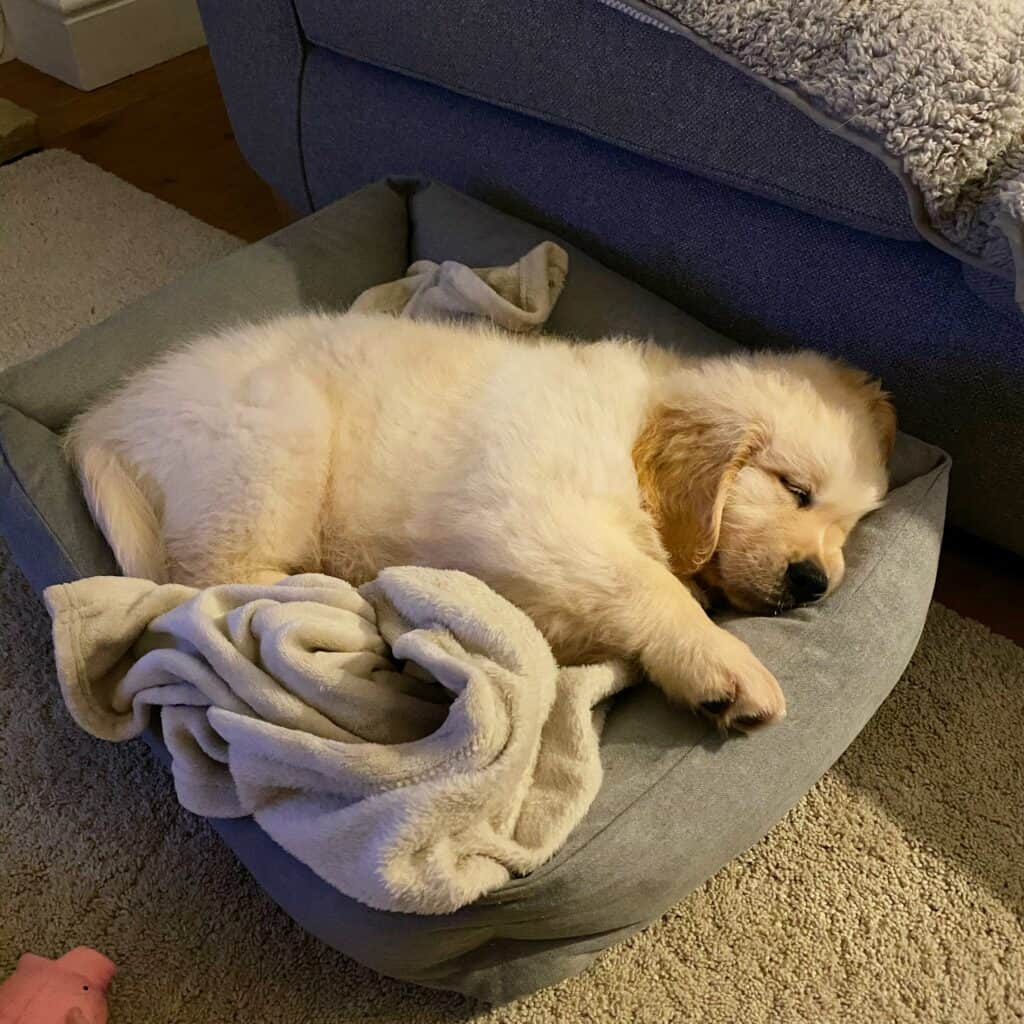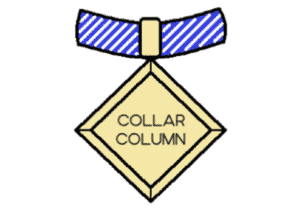So you’re not sure how long your puppy can hold their bowels (and bladder) at night? We wondered the same thing and you’re probably stressed out wondering if your puppy will be able to hold it until you let them out. We were the same! Rather than fixate on just their bowels, you will need to consider their bladder too as their need to wee will be more frequent!
By around the age of 12 weeks, a lot of puppies may be able to go 5-6 hours at night for holding both poop and pee, with this increasing with age. Prior to this, you will need to have a closer watch and need to use alarms to avoid accidents. This time can be quite reliant on crate training, with puppies instinctively not wanting to use their “den” as the toilet.
Below we discuss in more detail how long they can last as well as some of the variables, and how you can be successful in not having accidents.

How Long Can They Hold It At Night?
There isn’t a set duration for every puppy and a lot will be based on their age and size. A puppy will be able to last longer when it comes to poop, compared to wee, as long as you time their evening meal correctly, but as mentioned, you will be better off considering both pee and poop times! They will both need cleaning up!
So the first variable is age. From when you pick up your puppy at about 8 weeks, they will obviously have a lot more control compared to when just a few weeks old, but they still don’t have the best control over their bodily functions. When they do need to go it is there and then! After a few weeks, as they grow and with good training, they will begin to develop the ability to hold it. At around 12 weeks don’t be surprised if your puppy can go 5-6 hours through the night without an accident. You can stretch this time out as part of training and see below where we outline an example plan for stretching this time out.
Another variable is size as smaller dog breeds will fill their bladder quicker as it’s smaller so you may have to take them out more frequently.
Specifically relating to holding their bowels, i.e no poop, make sure to feed their evening meal early enough, so they have time to digest and have a poop before bed, rather than in the middle of the night! You want to try and establish a good bedtime routine, and allow them the chance to pee and poop before going to bed in the evening. Notice how often they poop during the day, and how long after food, to help give an idea of the latest time you can feed them so they can poop before bedtime.
With Albus we were lucky that he never pooped in his crate. There were wee accidents, but with perseverance and training, such as the alarm schedule below, he was able to go from 11pm to 7am with no accidents by around 15-16 weeks.
Alarms Are KEY!
With Albus, we used an alarm system and pushed the times further and further as he got older. The first milestone was removing one of the alarms, and then pushing the remaining until he didn’t need it. Note that he was crate trained which helps the process be quicker. See below an example of what we implemented.
| Age | Bed Time | 1st Alarm | 2nd Alarm | Wake-up |
| 8 weeks – Our first week | 10pm | 1am | 4am | 7am |
| 9 weeks | 10pm | 1:30am | 5am | 7am |
| 10 weeks | 11pm | 2:30am | 6am | |
| 11 weeks | 11pm | 3am | 7am | |
| 12 weeks | 11pm | 4am | 7am | |
| 13 weeks | 11pm | 5am | 7am | |
| 14 weeks | 11pm | 6am | ||
| 15 weeks | 11pm | 7am |
When you do get up with your puppy, a tip is to not engage with them! Don’t play with them or enter into a long discussion! :-). This is strictly business! Otherwise, they won’t get back to sleep!
Once you are getting your puppy up, and there have been no accidents, and it’s taking them a long time to wee outside, then it is usually a good sign that they are ready for the gap between alarms to be extended. You can do this in smaller increments than the example above if your puppy needs it, but you may find over the course of the week you can build it to the full 30 minutes/hour difference. It is important to go at your puppy’s pace!
If you find they have had an accident, or they are barking before your alarm has sounded, go back a week and repeat until they are showing those signs of not needing the toilet (taking a long time to go, reluctant to wake up, or trying to go back to sleep).
You may find that your puppy’s ability to hold it during the day is significantly different but we have to remember they will be eating and drinking a lot more during the day! Don’t be disheartened if your puppy can go through the night without waking or any accidents but is still having frequent accidents in the day.
See my other post on How to Know My Puppy Needs the Toilet Plus Easy Tips!

